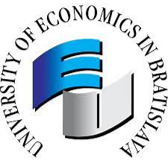Partners
1. TU DORTMUND
TU Dortmund University has been researching and teaching at the global intersection between man, nature and technology since its foundation in 1968. It has developed a unique profile with a combination of faculties in the natural sciences and engineering, the social sciences and the humanities. The vibrant structure with about 34,300 students in 17 faculties as well as about 6,500 employees – among them 300 professors – produces new knowledge, methodologies and technical innovations. This is achieved through a wide spectrum of innovative research and by offering 80 bachelor’s and master’s programs including a broad-based teacher training curriculum in at least 30 subjects. At TU Dortmund University there are more than 4,300 foreign students from over 115 countries, which highlights its international character. TU Dortmund University maintains cooperation agreements with numerous universities all over the world, for instance in the United States, South Africa, China or Latin America. Furthermore, the university is a member of exchange organizations such as ISEP (International Student Exchange Program) and the DAAD (German Academic Exchange Service) and of course takes part in the European exchange program ERASMUS+. The university itself is located in the Ruhr region, one of the industrial centers of Germany, and has strong links to all major German as well as to a number of European companies.
The Chair of Enterprise Logistics can now look upon more than 50 years of experience and success. It stands for both theoretical and applied research and teaching in the fields of Enterprise Logistics and Supply Chain Management. Therefore, TU Dortmund offers 15 lectures dealing with topics from the major fields of Logistics Management, Industrial Engineering and Mechanical Engineering. The areas of expertise of the chair for enterprise logistics include supply chain management and purchasing, production management and factory planning, competence management and innovative learning concepts, silicon economy, blockchain Europe as well as maintenance and service management. The international orientation and commitment of the Chair for both students and teachers will be a future priority. The Chair has built strong ties to international universities such as the Georgia Institute of Technology, the Tongji University and the Stellenbosch University that are currently in the process of reconstruction and expansion. As the founding Chair of the Graduate School of Logistics – a unique institution based on the concept of a solely third-party funded doctoral program – since 2009, the Chair of Enterprise Logistics is highly engaged in scientific counselling of industry sponsored PhD candidates. In collaboration with notable German enterprises, the Chair strengthens cooperative interdisciplinary research concerning recent topics in logistics and Supply Chain Management as well as promotes the intensive exchange between science and practice.
The TU Dortmund University in close cooperation with the Fraunhofer IML is building up and further developing Purchasing and Supply Management (PSM) related education and research as integrated part of Supply Chain Management and as a driver for Financial Supply Chain Management. In 2016 TU Dortmund University hosted the yearly conference of the International Purchasing and Supply Education and Research Association (IPSERA), which is a multi-disciplinary network of academics and practitioners dedicated to the development of knowledge concerning PSM.
In the project PERSIST, TU Dortmund was responsible to supervise IO4 (Development of a concept for module-based course for I4.0 PSM with gamification elements based on the outcomes of the Delphi studies), co-supervised IO1 (Theoretical I4.0 PSM Skills Framework and Gamification Overview in PSM Education) and co-supervised IO1 (Theoretical Industry 4.0 PSM Skills Framework and Gamification Overview in PSM Education) and IO3 (Conducting Delphi Studies on future PSM-competencies in the era of I4.0 and the use of Gamification in Higher Education).
2. UNIVERSITY OF TWENTE
HIGH TECH, HUMAN TOUCH; that is the University of Twente. The University of Twente (UT) is a young, entrepreneurial research university. Founded in 1961 in Enschede, the Netherlands. 3,300 scientists and other professionals working together on cuttingedge research, innovations with real-world relevance and inspiring education for more than 12,000 students.
The University of Twente is a research university that focuses on the development of technology and its impact on people and society. This focus can be seen in the range of 20 Bachelor’s degree programs and 36 Master’s degree programs, which the university offers in the field of technology and behavioral and social sciences. There are 5,500 Bachelor’s degree students and 2,500 Master’s degree students at the University of Twente. UT’s research is highly regarded at national and international levels and is accommodated within world-leading research institutes. The main research themes of the UT are nanotechnology, information technology, biomedical technology, governance, behavioral sciences, and geo-information science.
The research institutes combine scientific excellence with a sharp eye for economic and societal impact. They are highly successful in generating spin-off businesses (over 50 new companies annually). Twente was the first university to be awarded the “Global Standard for Professional Competence in Purchasing and Supply administered by IFPSM,” which is a voluntary certification indicating the practice relevance of the study program in purchasing. Twente is the only Dutch university offering a full bachelor specialization in purchasing and the second public university in Europe to offer a master profile in purchasing. The department TM/S Technology Management and Supply is part of the faculty BMS – Behavioural, Management, and Social Sciences. In teaching it is responsible for one master track and supporting several others, likewise teaching in the bachelor of business administration and with industrial engineering and management. The University of Twente is one of the top 5 global universities in purchasing & supply management (PSM) science and education: In the last five years, Twente was the most active university presenting at specific international conferences, for instance, the leading conference of the PSM field, the IPSERA conference, where continuously more than 10% of all contributions come from Twente’s 20+ purchasing research staff. Twente is home to UTIPS, a center of excellence that brings together the 20+ PSM teachers and researchers at the University of Twente hosted in two faculties. Taking all purchasing/procurement/sourcing related journal paper publications as listed in the SCOPUS database together, Twente ranges on Europe’s place 5. According to the same sample, Prof. Schiele, who will be the project lead from the University of Twente, is among the three most published professors of purchasing and supply management in the world.
The chair of Technology Management & Supply at the UT consists of two full professors (industrial purchasing and public procurement), six scientific staff members, and ten PhD candidates. The chair is responsible for the Master graduation track Purchasing and Supply Management and is offering five courses of 5ECTS on purchasing and supply chain management.
3. LUT UNIVERSITY OF TECHNOLOGY
Lappeenranta-Lahti University of Technology (LUT University) is a pioneering science university in Finland, bringing together the fields of science and business since 1969. Our international community is composed of approximately 7,100 students and experts engaged in scientific research and academic education. Our strength lies in our way of working together across scientific and departmental boundaries. We are constantly expanding our networks in both the business and the academic community. LUT University has a tradition of strong links with the business community. The Finnish business journal „Talouselämä“ has ranked LUT as the best university in business technology cooperation in Finland. We promote business generated by scientific research. We aim to be a forerunner in education by securing international quality labels for our degree programs as a sign of excellence in the teaching. In year 2022, there were approximately 98 nationalities in our campus. LUT is one of the world’s 20 most promising and rapidly developing challenger universities according to a report by the Firetail consulting firm. The level of our research is high according to an international evaluation (source: Research Assessment Exercise, RAE). In the most recent QS rankings published in 2023, LUT’s position was 388. LUT’s special strength is research intensity. According to 2014 Times Higher Education World University rankings, LUT is one of the world’s top 300 Universities. Our work supports our values: the courage to succeed, the passion for innovation through science, and the will to build well-being.
In the PERSIST project LUT University was responsible for (co)supervising of the qualitative research in IO2, which is a strength of LUT University. LUT University supervised IO2 (Qualitative Pre-study by conducting World Cafe Sessions and Expert Interviews as a Starting Point for the Delphi Studies) and subsequently had supportive role in studies on future PSM-competencies in the era of I4.0 and the use of Gamification in Higher Education. Next to this LUT is able to develop new and innovative curriculum structures for the future needs of PSM professionals in I4.0 building upon the previous research of LUT in digitalisation and automation.
LUT University has one of the first European Masters programs in the field of purchasing & supply management (PSM). The Master’s program curriculum in Supply Management is designed for future specialists and managers of supplier relationships, networks and strategic buying. The program focuses on the challenges of global sourcing, strategic supply management and cost effectiveness of a firm. The program develops special skills and competencies in supply management and gives tools to explore and find responsible sources from global supply networks. The program is working in close collaboration with industry and public sector in Finland. The program cooperates with the leading Universities and scholars across Europe.
4. THE UNIVERSITY OF ECONOMICS IN BRATISLAVA
The University of Economics in Bratislava (UEB) is established in 1940 as the Slovak Higher School of Commerce, is one of the most important educational and scientific-research institutions in the Slovak Republic. In project PERSIST UEB was represented by associate professor Doc. Ing. Michal Tkáč, PhD and his research team. As hereunder stated, they are knowledgeable to the topic of Purchasing and Supply Management and the use of algorithms in the field of e-procurement, which in fact is the digitalisation and automation of the purchasing and supply management processes. The The University of Economics in Bratislava provides higher education in the field of economics and business in Bachelor’s, Master’s and Doctoral programs for full-time and part-time students. Science and research form an integral part of the university’s activities. It is also a member of various international institutions such as: the EUA – European University Association, the EAIE – European Association for International Education, IUA – International University Association, Magna Charta Universitatum and others. The university has 7 faculties situated in the capital of Slovak Republic and one faculty resides in Košice.
Faculty of Business Economics with seat in Košice is scientific and educational institution preparing future economists for businesses and institutions, as well as government. Within the profile of the faculty, they focused primarily on the needs of practice, which requires not only highly skilled but also flexible and self-thinking professionals able to take their place in a relatively wide range of economic activities.
Science and research activities are grouped and developed in six basic pillars:
• Market and applied economic research
• eSourcing and procurement
• Applied statistics and mathematics
• Environmental studies, Ecology and Energy Efficiency
• Financial Markets, Stock Markets
• Sustainable growth and regional innovation systems
• Competitiveness and innovation activities
• Information and Communication Technologies
The Faculty of Business Economics with seat in Košice is the first academic centre for education and training of economists in the East of Slovakia.
In the next two years, the faculty wants to start four new accredited bachelor programs, which will benefit from results of this projects and from knowledge exchange within the consortium. One of these programs is Purchasing and Supply administration, which will be the first bachelor program in Slovakia specializing in eSourcing and procurement. Other programs are focused on: Enterprise data analysis, Controlling and reporting, Business process design and improvement.
In the PERSIST project UEB was responsible for supervising IO1 (Theoretical I4.0 PSM Skills Framework and Gamification Overview in PSM Education) and to co-supervising IO5 (Realisation and validation of the module-based course including learning material). The UEB team has experience with creating learning material and has a strong drive to create a new, up-to-date course for the future curriculum in PSM.
The added value of UEB is mainly based on the expertise on innovative, cognitive and smart eprocurement solutions (esp. data-based procurement decision-making, automation of processes, procurement of innovation, green and social procurement and cognitive features of technologies) and related skills, gamification and creative approaches for learning within ecosystem of practice, qualitative and quantitative research analysis and methodologies in this field. The research team will also contribute to the data gathering and requirements analysis, preparing and conducting interviews, designing and testing the solution and cooperation with practice in line with dissemination and exploitation activities. The faculty actively cooperate with main players in the field of e-procurement in Central Europe on the development of innovative solutions and improvements of procurement skills in new-generation digital procurement ecosystems.







